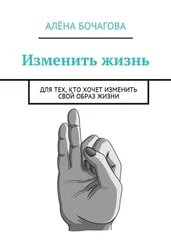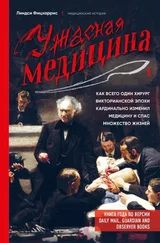Kirkpatrick JN, Guger CJ, Arnsdorf MF, Fedson SE. Advance directives in the cardiac care unit. Am Heart J . 2007; 154 (3): 477-81.
Escher M, Perrier A, Rudaz S, Dayer P, Perneger TV. Doctors’ decisions when faced with contradictory patient advance directives and health care proxy opinion: a randomized vignette-based study. J Pain Symptom Manage . 2014.
Escher et al., Doctors’ decisions.
Diekema DS. Revisiting the best interest standard: uses and misuses. J Clin Ethics . 2011; 22 (2): 128-33.
Himmelstein DU, Thorne D, Warren E, Woolhandler S. Medical bankruptcy in the United States, 2007: results of a national study. Am J Med . 2009; 122 (8): 741-46.
Senelick R. Get your doctor to stop using medical jargon. Huffington Post. www.huffingtonpost.com/richard-c-senelick-md/medical-jargon_b_1450797.html. 2012.
Fagerlin A, Schneider CE. Enough. The failure of the living will. Hastings Cent Rep . 2004; 34 (2): 30–42.
Brickman P, Coates D, Janoff-Bulman R. Lottery winners and accident victims: is happiness relative? J Pers Soc Psychol . 1978; 36 (8): 917-27.
Silver RL. Coping with an Undesirable Life Event: A Study of Early Reactions to Physical Disability [dissertation]. Northwestern University; 1982.
Schkade DA, Kahneman, D. Does living in California make people happy? A focusing illusion in judgments of life satisfaction. Psychological Science . 1998; 9 (5): 340-46.
Shalowitz DI, Garrett-Mayer E, Wendler D. The accuracy of surrogate decision makers: a systematic review. Arch Intern Med . 2006; 166 (5): 493-97.
Danis et al., Stability of choices [см. «Когда бремя несут опекуны», прим. 41].
Suhl J, Simons P, Reedy T, Garrick T. Myth of substituted judgment. Surrogate decision making regarding life support is unreliable. Arch Intern Med . 1994; 154 (1): 90–96.
Coppola KM, Ditto PH, Danks JH, Smucker WD. Accuracy of primary care and hospital-based physicians’ predictions of elderly outpatients’ treatment preferences with and without advance directives. Arch Intern Med . 2001; 161 (3): 431-40.
Vig EK, Starks H, Taylor JS, Hopley EK, Fryer-Edwards K. Surviving surrogate decision-making: what helps and hampers the experience of making medical decisions for others. J Gen Intern Med . 2007; 22 (9): 1274-79.
Watson A, Sheridan B, Rodriguez M, Seifi A. Biologically-related or emotionally-connected: who would be the better surrogate decision-maker? Med Health Care Philos . 2014.
Emanuel EJ. Living wills: are durable powers of attorney better? Hastings Cent Rep . 2004; 34 (6): 5–6; author reply 7.
Wastila LJ, Farber NJ. Residents’ perceptions about surrogate decision makers’ financial conflicts of interest in ventilator withdrawal. J Palliat Med . 2014; 17 (5): 533-39.
Rodriguez RM, Navarrete E, Schwaber J, McKleroy W, Clouse A, Kerrigan SF, et al. A prospective study of primary surrogate decision makers’ knowledge of intensive care, Crit Care Med . 2008; 36 (5): 1633-6; Azoulay E, Chevret S, Leleu G, Pochard F, Barboteu M, Adrie C, et al. Half the families of intensive care unit patients experience inadequate communication with physicians. Crit Care Med . 2000; 28 (8): 3044-49.
Quinn JR, Schmitt M, Baggs JG, Norton SA, Dombeck MT, Sellers CR. Family members’ informal roles in end-of-life decision making in adult intensive care units. Am J Crit Care . 2012; 21 (1): 43–51.
Hawkins NA, Ditto PH, Danks JH, Smucker WD. Micromanaging death: process preferences, values, and goals in end-of-life medical decision making. Gerontologist . 2005; 45 (1): 107-17.
Puchalski et al., Patients who want [см. «Когда бремя несут опекуны», прим. 47].
Long AC, Curtis JR. The epidemic of physician-family conflict in the ICU and what we should do about it. Crit Care Med . 2014; 42 (2): 461-62.
Beam C. Under the knife. New Yorker . August 25, 2014.
Warraich H. Pakistan: the final frontier for a polio-free world. Lancet . 2011; 377 (9761): 207-8; Warraich HJ. Religious opposition to polio vaccination. Emerg Infect Dis . 2009; 15 (6): 978.
Studdert DM, Mello MM, Burns JP, Puopolo AL, Galper BZ, Truog RD, et al. Conflict in the care of patients with prolonged stay in the ICU: types, sources, and predictors. Intensive Care Med . 2003; 29 (9): 1489-97.
Schuster RA, Hong SY, Arnold RM, White DB. Investigating conflict in ICUs— is the clinicians’ perspective enough? Crit Care Med . 2014; 42 (2): 328-35.
Breen CM, Abernethy AP, Abbott KH, Tulsky JA. Conflict associated with decisions to limit life-sustaining treatment in intensive care units. J Gen Intern Med . 2001; 16 (5): 283-89.
Studdert et al., Conflict.
Silveira MJ, Kim SY, Langa KM. Advance directives and outcomes of surrogate decision making before death. N Engl J Med . 2010; 362 (13): 1211-18.
Majesko A, Hong SY, Weissfeld L, White DB. Identifying family members who may struggle in the role of surrogate decision maker. Crit Care Med . 2012; 40 (8): 2281-86.
Marks MA, Arkes HR. Patient and surrogate disagreement in end-of-life decisions: can surrogates accurately predict patients’ preferences? Med Decis Making . 2008; 28 (4): 524-31.
Schenker Y, Crowley-Matoka M, Dohan D, Tiver GA, Arnold RM, White DB. I don’t want to be the one saying «we should just let him die»: intrapersonal tensions experienced by surrogate decision makers in the ICU. J Gen Intern Med . 2012; 27 (12): 1657-65.
Parks SM, Winter L, Santana AJ, Parker B, Diamond JJ, Rose M, et al. Family factors in end-of-life decision-making: family conflict and proxy relationship. J Palliat Med . 2011; 14 (2): 179-84.
Studdert et al., Conflict.
Breen et al., Conflict.
Salam R. How La Crosse, Wisconsin slashed end-of-life medical expenditures. National Review . www.nationalreview.com/agenda/372501/how-la-crosse-wisconsin-slashed-end-life-medical-expenditures-reihan-salam. 2014.
Fritsch J, Petronio S, Helft PR, Torke AM. Making decisions for hospitalized older adults: ethical factors considered by family surrogates. J Clin Ethics . 2013; 24 (2): 125-34.
Knickle K, McNaughton N, Downar J. Beyond winning: mediation, conflict resolution, and non-rational sources of conflict in the ICU. Crit Care . 2012; 16 (3): 308.
Читать дальше
Конец ознакомительного отрывка
Купить книгу


![Людмила Петрушевская - Спасибо! Посвящается тем, кто изменил наши жизни [сборник]](/books/28331/lyudmila-petrushevskaya-spasibo-posvyachaetsya-tem-kto-thumb.webp)









